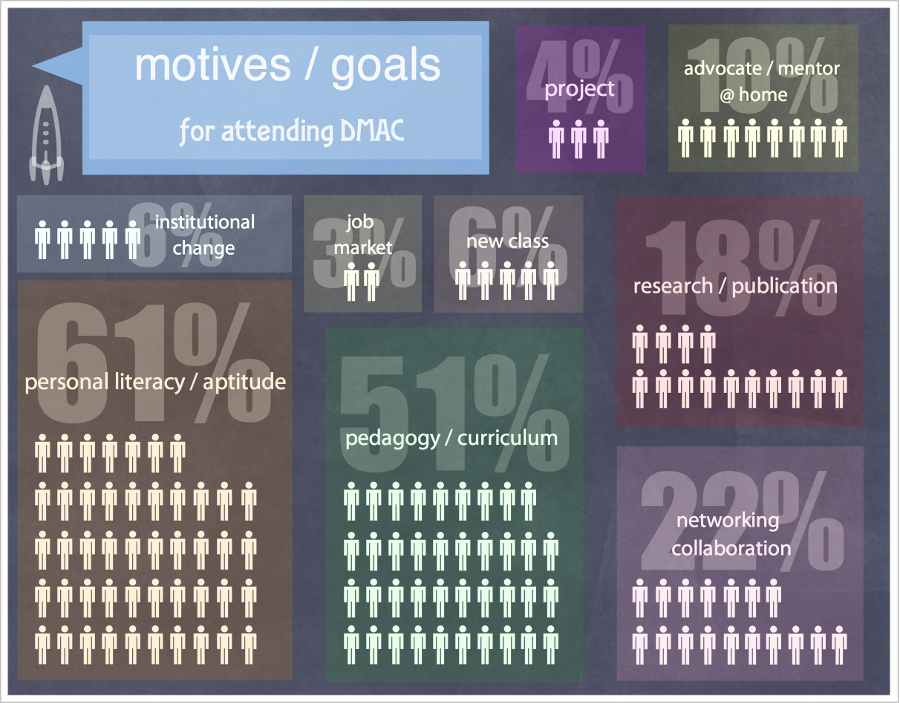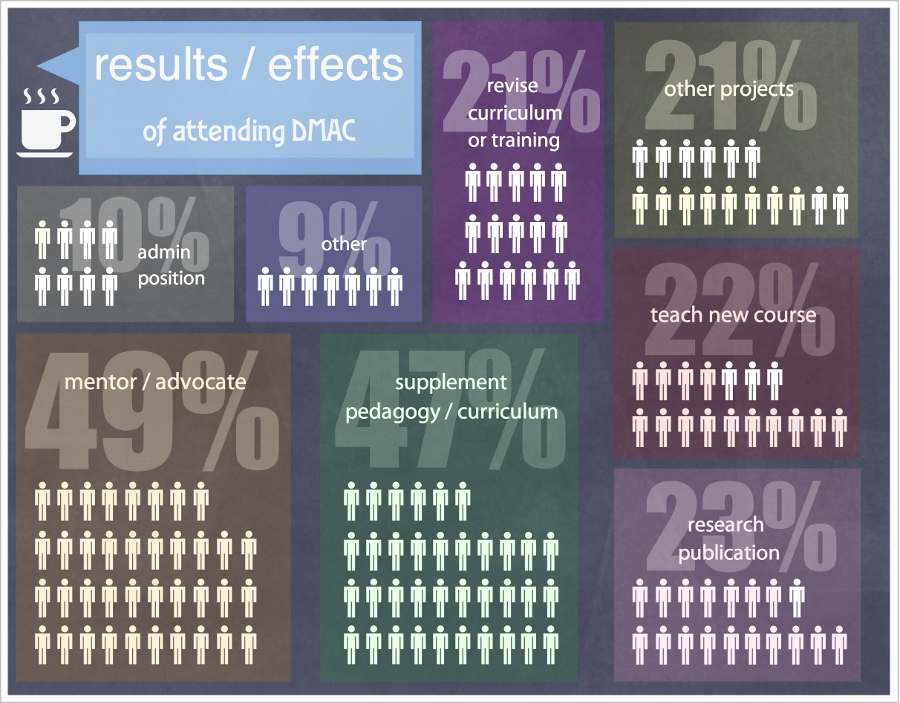analysis ii
The most commonly reported motivation for attending DMAC was developing personal literacy or aptitude related to both the use of digital media technology and familiarity with the scholarly field. The most commonly reported result of DMAC attendance, however, was mentoring others and advocating for digital and multimodal composition at participants' home institutions (from 10% in reported goals to almost 50% in reported results). We see, then, a shift from expectations involving the individual to results involving professional communities and collaborative work. Integrating digital and multimodal work into existing pedagogy and curricula was the second most common motivation and result, remaining a constant at roughly half of survey respondents. Overall, the average DMAC alum reported more results than motivations, perhaps due to the speculative nature of recovering motives for an action unadulterated by knowledge of that action's effects. Regardless, the reported results tend to emphasize the participant as a (co-)producer of knowledge in institutional and scholarly communities.
Because a respondent could identify more than one motive/result, the percentages indictate the ratio of the identifications of that type of motive/result to the total number of respondents. Use the buttons below to toggle between motives and results, and see the key below the infographic for explanations of each category. The next page focuses on a specific result of DMAC attendance: networking.

personal literacy/aptitude: familiarity with the field, theory, research, skills, techniques, software, etc
pedagogy/curriculum: application of digital media in classroom situations
networking/collaboration: interacting with DMAC staff and participants
research/publication: digital research methods and/or digital composing for scholarly publication
advocate/mentor @ home: spreading digital media theory, literacy, pedagogy, and practice at home institutions
institutional change: responding to programmatic changes at home institutions (e.g., curricular reform)
new class: desire or plans to teach digital media composition, online/hybrid courses, etc
project: academic projects beyond research and publication
job market: skills and credentials for the academic job market

mentor/advocate: spread digital media theory, literacy, pedagogy, and practice at home institutions
supplement pedagogy/curriculum: applied digital media in standard course offerings
research/publication: used digital research methods and/or digital composing for scholarly publication
teach new course: qualified to teach standard courses or individually planned/taught new courses
other projects: conducted academic projects beyond research and publication
revise curriculum or training: made programmatic changes in course offerings/expectations and teacher training
admin position: took an administrative position relevant in some way to the use of digital media
or technology
other: founded organization/initiative (5%), updated classrooms/hardware (3%), discussed
on the job market (1%)